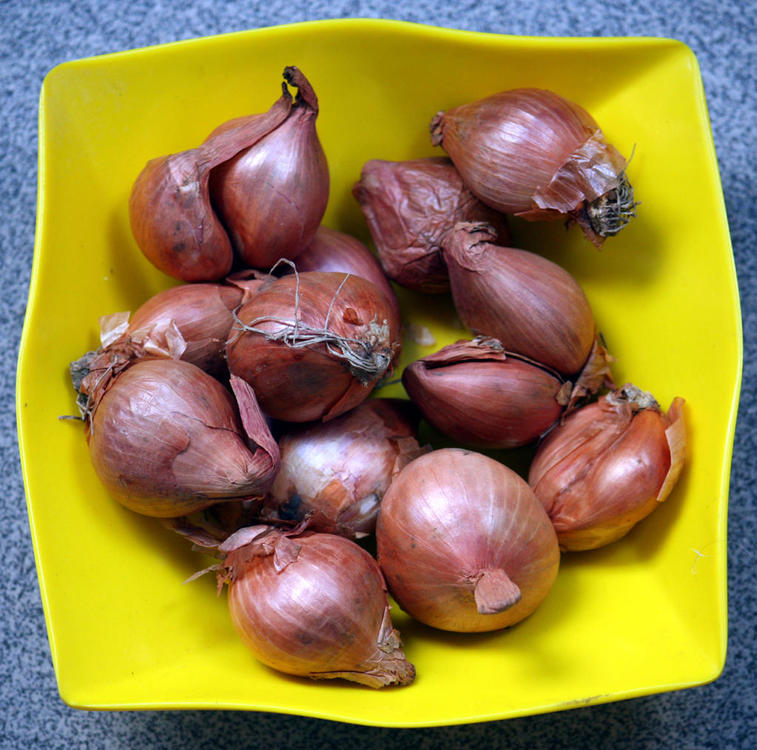Leaving chillies behind for now, I forgot about this one while discussing alliums.
Allium cepa var. aggregatum - Shallots
We only get this one variety. In Chinese they are usually 小葱 (Mand: xiǎo cōng; Cant: siu2 cung1) meaning 'small onion'. I've occasionally seen them called 火葱 (Mand: huǒ cōng; Cant: fo2 cung1) meaning 'fire onions'. I always have some on hand, but use mainly in western dishes. The locals use them whole in hot pots etc but more often pickle them.





